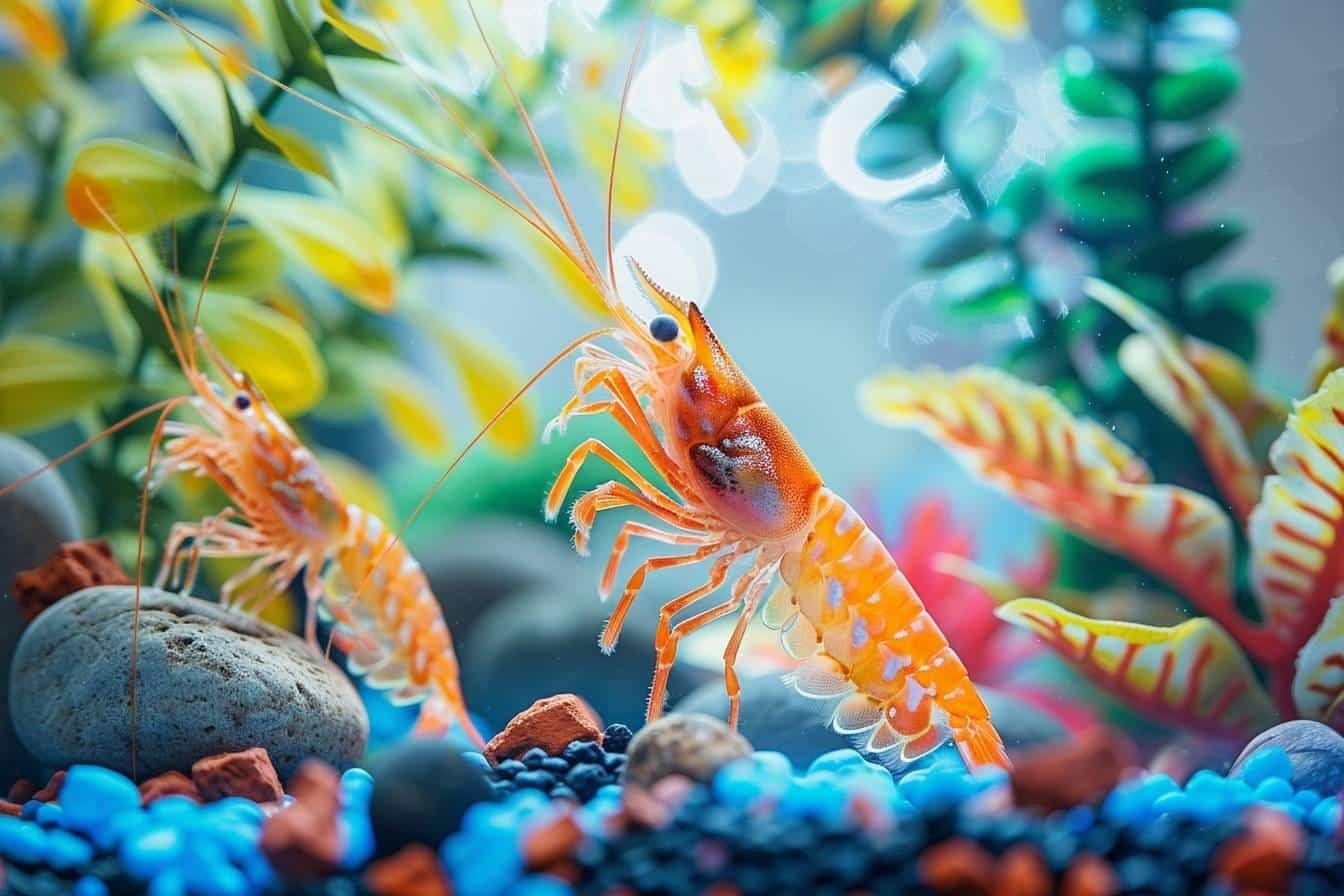Betta fish, also known as fighters, are renowned for their beauty and fiery temperament. But can they cohabit with other aquatic species? That's the question I've often asked myself as a pet shop floor manager. After years of experience and observation, I can tell you that cohabitation is possible, but it does require a few precautions. Let's dive into this interesting world together!
The basics of living successfully with a betta
A suitable environment for everyone
To ensure the successful cohabitation of a betta with other fishThe first step is to provide them with a suitable habitat. You need an aquarium of at least 60 to 100 litres. I remember my first attempt in a 30-litre... What a mistake! Bettas need space, but they also need hiding places. Think about adding plants and decorations to create refuge areas.
The ideal temperature is around 25°C, with a pH between 6.5 and 7.5. A good filtration system is essential for maintaining good water quality. Don't forget that these little guys are sensitive to variations in parameters!
The character of the betta: a key factor
Le male betta is notoriously aggressive and territorial. In fact, that's part of its charm, isn't it? But it does complicate things a little when it comes to living together. Females, on the other hand, are generally more sociable. If you opt for females, plan to have at least 3 or 4 to spread out the aggression.
In all cases, observe your betta's behaviour carefully when introducing new companions. Some individuals are more tolerant than others. I once had a betta that thought he was the sheriff of the aquarium, which was quite funny to see!
Choosing flatmates
Here is a summary table of fish compatible and incompatible with bettas:
| Compatible | Incompatible |
|---|---|
| Blue neon lights | Guppys |
| Corydoras | Gouramis |
| Platys | Brightly coloured fish |
| Harlequin Rasboras | Fish with large fins |
| Dwarf cichlids | |
| Certain groundfish |
Don't forget that every betta has its own personality. This table is a guide, but observation is essential.
Tips for harmonious cohabitation
The gradual introduction of new residents
The key to successful cohabitation is patience. Introduce new fish gradually, starting with the most peaceful species. Observe the interactions over several days. If you see your betta constantly chasing after its new companions, it's a bad sign!
A tip I often use: rearrange the aquarium slightly before introducing new fish. This disrupts the betta's bearings a little and makes it less territorial. Clever, isn't it?
The importance of a plan B
Despite all precautions, it can happen that living together doesn't work out. That's why I always recommend having a back-up aquarium on hand. It may be a simple quarantine tank, but it can save lives!
I had to use this solution once with a particularly grumpy betta. He ended up with his own 'studio', and everyone was happier that way.
Enriching the environment to reduce stress
The more hiding places and distractions there are in the aquarium, the less stressed the fish will be. Think about varying the types of plants, add rocks, driftwood... Your betta will love exploring its environment, and other fish will be more likely to escape its gaze if it becomes a little too curious.
Feel free to add a few shrimps in your aquarium. They contribute to the balance of the ecosystem and provide an interesting spectacle!

The final word: patience and observation
Co-habiting a betta with other fish is an exciting challenge, but one that requires experience. If you're new to aquarium keeping, I'd advise you to start with a betta on its own or with really peaceful species.
Remember that every betta is unique. What works for one may be a disaster for another. Observation is your best ally. Take the time to get to know your fish, its habits and temperament. That's the charm of aquaristics!
At the end of the day, whether you choose to have your betta live with you or give it its own kingdom, the most important thing is to provide it with the best possible living conditions. These little fish with their strong character deserve all our respect and attention.
External sources :

2 thoughts on “Betta avec autre poisson : cohabitation réussie en aquarium”